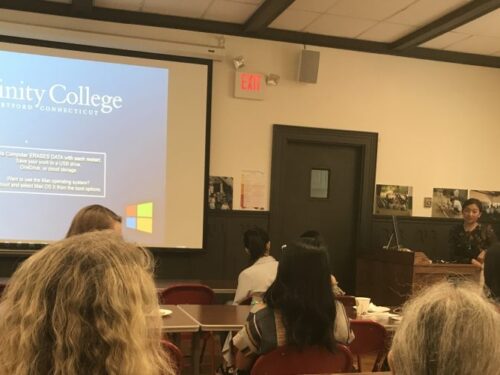TRINITY COLLEGE UNVEILS NEW LIBERAL ARTS ACTION LAB
The Liberal Arts Action Lab is a new partnership between Trinity College and Capital Community College. Based in downtown Hartford at 10 Constitution Plaza, the Action Lab is a space where community members, nonprofits, government agencies, and social entrepreneurs can come with research questions or problems that they want solved to help their own work in the city. Using the resources of Trinity and Capital students, faculty fellows, and the Action Lab director, teams will develop and implement research projects to help offer solutions to these problems.


